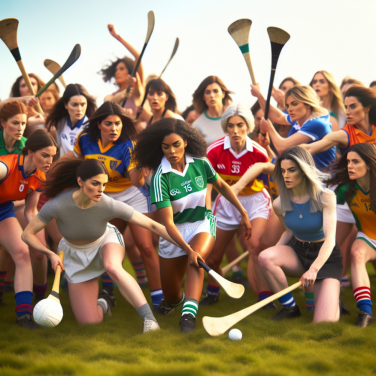Tracing the Evolution of Baseball in American Sports History
The roots of baseball in America can be traced back to the mid-18th century; cricket and rounders, two British sports, heavily influenced the new game. The first recorded game took place in 1845 in the city of New York. Since then, baseball has experienced significant growth and change, shaping it into the sport we know today.
Often referred to as America's pastime, baseball initially started as a casual game played with improvised equipment and varying rules. The establishment of the first baseball club, the New York Knickerbocker Base Ball Club, in 1845 led to the standardization of rules. This seminal moment marked the beginning of baseball's journey toward the national sport status it owns today.
Baseball further embedded itself into American culture during the Civil War. Soldiers from different parts of the country were exposed to the game and took it back to their regions after the war, spreading its popularity throughout the nation. Upon the establishment of the National Association of Professional Base Ball Players in 1871, professional leagues began to form, escalating the intensity and passion within the sport.
The culmination of baseball's early period was marked by the formation of the National League in 1876, which still exists today. This era was characterized by tumultuous relationships between teams, dominance by an elite few, and a stark wage gap within the player pool, repeating patterns seen throughout the country's labor history.
In the early 20th century, the sport experienced a significant evolution with the establishment of the American League in 1901, bringing about a two-league system that still exists. Baseball then was shaped by several transformative events, including Babe Ruth’s emergence as a national icon, the scandalous 1919 World Series, and the integration of the sport, marked by Jackie Robinson's debut in 1947.
Throughout the mid to late 20th century, baseball's influence continued to permeate American culture, including desegregation, television broadcasts, and competition with other popular sports. The Battle for racial equality in the United States played out in the baseball field where African American and Latin American athletes broke barriers, serving as inspirations for fans and players alike.
The advent of television played a significant role in the evolution of baseball during the 1950s and 60s. The chance to watch games, players, and key moments in real-time revolutionized the sport, making it accessible to a wider audience.
Read also:
Charting the Winners: A Comprehensive Look into Recent Golf Championships
Assessing the Sociocultural Impact of Baseball in America
Baseball's iconic stature within American culture can largely be attributed to its societal implications and influence that weaves tightly into the country's social fabric. Orchestrated over time, this influence transcends the mere confines of sport, echoing into societal norms, popular culture, economic grinds, and political discourses.
To understand the sociocultural impact of baseball in American society, we must first remember its historical roots. Baseball emerged in the late 19th century, during a period of significant transformation, urbanization, and cultural change. Amid this shift, baseball served as a binding element, providing a social platform that cut across class lines and provided a sense of community.
Racial integration is a significant aspect of baseball's sociocultural evolution. The sport was a battleground for racial equality in American society long before the Civil Rights Movement. The story of Jackie Robinson breaking the color barrier in Major League Baseball in 1947 exemplifies how baseball played a pivotal role in promoting racial equality, signaling the beginning of the end for segregation within the sport.
In tandem with racial integration, baseball has also served as a symbol of American identity and national pride. In times of crisis, like World War II and the aftermath of 9/11, the game became a symbol of buoyant American spirit. It gave people a sense of normalcy and allowed them to briefly escape the grim realities surrounding them, enhancing its status as America's "national pastime".
Furthermore, baseball has been deeply involved in the shaping of gender narratives. Softball, for instance, was initially created as a softer, indoor version of baseball, often associated with women. Yet, in recent decades, women have been breaking boundaries in baseball. Women's leagues' emergence and the inclusion of women in coaching or managerial roles in the male-dominated baseball leagues testify to the game's changing gender dynamics.
Baseball has equally influenced American consumer culture. From clothing, caps, shards, cards, to films, and songs, baseball has left an indelible mark on American popular culture. Moreover, baseball stadiums have evolved into cultural landmarks, each with their own unique character embodying a specific slice of America.
Lastly, baseball has economic significance as a major industry, generating billions of dollars every year. It provides employment to thousands, from players, coaches, and administrators to stadium workers and transport providers.
In summary, baseball has a profound impact on American society beyond the diamond.




